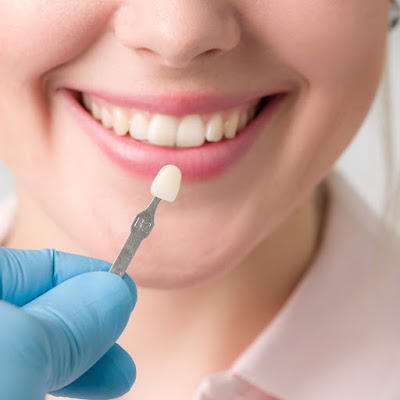There are an estimated 40 million Americans have sensitive teeth, and yet most of them do not go to the dentist when they should. In fact, one out of every eight people claim to have sensitive teeth but don’t talk to their dentist about it. If you have sensitive teeth, you might feel discomfort when you eat or drink something that is spicy, sweet, hot, or cold. The solution to this is to avoid the foods and drinks which trigger that discomfort.
Avoiding these triggers can help you to alleviate your symptoms altogether depending on your level of tooth sensitivity.
But in some cases, tooth sensitivity can be a sign of a more serious problem which is why you want to talk about it with your Tulsa Dentist even if it turns out to be something minimal.
Went to visit your Tulsa Dentist
Your teeth are not supposed to break down as an adult. They are supposed to last as long as you do. If you take care of them, they will. It is normal for your teeth to succumb to damage over time. Gums can proceed which exposes the root of your tooth to damage and increases your sensitivity. Your enamel can break down and cause your teeth to be more sensitive. Your teeth might develop cracks and increase your risk of cavities. You might even suffer from other dental problems.
In addition to your regular checkups and cleanings, you should see your dentist immediately if you experience an unusual amount of sensitivity, or if one particular tooth becomes sensitive. Do not wait until your next biannual cleaning. If, for example, you have a crack in your tooth, bacteria can get into that crack and cause an infection. This could even make the crack works. The longer you wait, the higher the chance that your issue will get worse. That is why you want to take care of dental problems as soon as possible. Within a few days of experiencing unusual levels of sensitivity, you should get a dental evaluation.
What happens during the visit?
If you schedule a visit with your dentist because of unexpected tooth sensitivity, your dentist will ask you questions to rule out underlying causes of your tooth sensitivity. They might ask you how often your teeth have been sensitive, whether all of your teeth are sensitive or just a single tooth, how long it lasts, whether it occurs with certain foods or drinks, and whether you have pain when you chew.
Related Article: Why is Root canal treatment required?
Depending on your answers, your dentist might make a recommendation to do something as simple as changing your toothpaste to one that is meant for sensitive teeth. Your dentist could also recommend that you wear a mouthguard to protect your teeth when you sleep. You might need fluoride treatments to strengthen your teeth. In the worst cases, you might need a surgical procedure. Whatever the situation is, talking to your dentist about the symptoms will help you to decide upon the best thing to do to reduce the problems of sensitive teeth.
There are several kinds of toothpaste designed to relieve tooth sensitivity. But do they really work?
Firstly it is important to figure out how they work. When your enamel wears away, and your dentin layer of the tooth is exposed, you are exposing your nerves to sensations like heat or cold from your food and drink. The desensitizing toothpaste will block the porous parts of your dentin so that these nerve endings are not as exposed and therefore the sensitivity not as painful.
Whether this toothpaste will work for you or not is entirely contingent upon the cause of your sensitivity. If you have a gum infection that is causing tooth sensitivity, a desensitizing toothpaste will obviously not work. This is an issue that has to be treated by a dentist. That is why it is so important that you talk to your dentist about the sensitivity so that they can help you determine the root cause and provide a course of action based on your situation.
In addition, to change your toothpaste, it is recommended that you switch to a softer toothbrush. If you currently use whitening treatments at home, it is best to stop using them. If you have dietary habits that could be harming your teeth, it is in your best interest to change them.
And, of course, don’t forget about regular dental care. Brushing and flossing your teeth regularly can reduce your levels of sensitivity. Always remember to get a brush that fits your mouth, brush your teeth at a 45° angle for two minutes, twice per day.


The more you manage your general wellbeing and well-being, the more likely you're be to lower your odds of falling.If you are more curious about دكتور علاج الألم then you can learn more about it on tebcan.com.
ReplyDelete